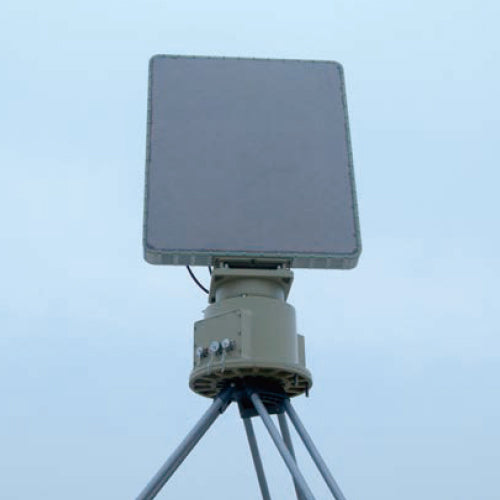CROSMAX
Military-grade Drone Detection Radar
Military-grade Drone Detection Radar
Couldn't load pickup availability
Military-Grade Drone Detection Radar: Defending the Low-Sky Battlefield
A Military-Grade Drone Detection Radar is a sophisticated sensor system specifically engineered to identify, track, and classify unmanned aerial vehicles (UAVs) or drones. Its primary mission is to protect personnel, critical assets, and airspace from the growing threat posed by hostile, intrusive, or rogue drones, which are often characterized as "low, slow, and small" (LSS) targets.
Typical Performance Specifications
Parameter Typical Performance
Detection Range 3 km to 10+ km for a Group 1-2 drone (e.g., DJI Phantom).
Coverage 360° Azimuth, 0° to 15°+ Elevation.
Target Capacity Capable of tracking dozens of targets simultaneously.
Target Classification Can classify targets as "Rotary-Wing," "Fixed-Wing," or "Avian" based on micro-Doppler.
Integration in a Counter-UAS (C-UAS) System
A radar is the "eyes" of a layered C-UAS system. It is integrated with other effectors to form a complete defense kill-chain:
Detect: The radar provides initial detection and continuous tracking.
Identify: The track is cued to an electro-optical/infrared (EO/IR) camera for visual confirmation.
Defeat: The target data is passed to an effector, such as an electronic warfare jammer (to break the drone's command link) or a kinetic system, to neutralize the threat.
Primary Deployment Scenarios
These systems are deployed to secure:
Military Bases and Forward Operating Bases (FOBs)
Critical National Infrastructure (e.g., power plants, government buildings)
International Borders and Checkpoints
Airports and Public Event Venues
In summary, a Military-Grade Drone Detection Radar is a pivotal technology in modern asymmetric warfare and force protection, providing the essential early warning needed to counter the pervasive and evolving threat from unmanned aerial systems.
Share






